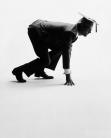Simple Subject and Predicate
Simple Subject and Predicate :
Our survey of the eight parts of speech has shown….
(1) That these have very different offices or functions in the sentence.
(2) That their functions are not of equal importance.
Clearly, the most important parts of speech are substantives (nouns and pronouns) and verbs.
Substantives enable us to name or designate persons, places or things. Verbs enable us to make statements about them. Both substantives and verbs, then, are absolutely necessary in framing sentences. Without a substantive, there can be no subject. Without a verb, there can be no predicate and both a subject and a predicate, as we have seen, are needed to make a sentence.
Adjectives and adverbs are less important than substantives and verbs. Their function is to modify other parts of speech, that is, to change their meaning in some way. Thus adjectives modify substantives (by describing or limiting) and adverbs usually modify verbs (by indicating how, when or where the action took place). Without substantives, there would be no use for adjectives. Without verbs, there would be little use for adverbs.
Prepositions and conjunctions are also less important than substantives and verbs. Their office is to connect and to show relation. Of course, there would be no place for connectives if there were nothing to connect.
Interjections are the least important of all. They add liveliness to language. But they are not actual necessities. We could express all the thoughts that enter our minds without ever using an interjection.
A sentence may consist of but two words - a noun or pronoun (the subject) and a verb (the predicate). Thus….Charles swims.
Commonly, however, either the subject or the predicate or both will contain more than one word. Thus….Young Charles swims slowly.
Here the complete subject (young Charles) consists of a noun (Charles) and an adjective (young) which describes Charles. The complete predicate consists of a verb (swims) and an adverb (slowly) which modifies swim by indicating how the action is performed. The subject noun (Charles) and the predicate verb (swims) are the chief words in the sentence, for neither could be omitted without destroying it. They form, so to speak, the frame or skeleton of the whole. Either of the two modifiers, the adjective or the adverb or both might be omitted without destroying the sentence….for this would still exist as the expression of a thought (Charles swims), though the thought would be less definite and exact than it is when the modifiers are included.
The simple subject of a sentence is a noun or pronoun.
The simple predicate of a sentence is a verb or verb-phrase.
The simple subject, with such words as explain or complete its meaning, forms the complete subject.
The simple predicate, with such words as explain or complete its meaning, forms the complete predicate.
In each of the following sentences the complete subject and the complete predicate are separated by a vertical line ( | ) and the simple subject and the simple predicate are printed in italics.
The spider | spreads her web.
The fiery smoke | rose upward in billowing volumes.
A nameless unrest | urged me forward.
Our frantic horses | swept round an angle of the road.
The infirmities of age | came early upon him.
The general feeling among the English in Bengal | was strongly in favor of the Governor General.
Salutes | were fired from the batteries.
The Clives | had been settled ever since the twelfth century on an estate of no great value near Market Drayton in Shropshire.
I | have written repeatedly to Mr. Hobhouse.
Two or more simple subjects may be joined to make one compound subject and two or more simple predicates to make one compound predicate.
1. Charles and Henry | play tennis well.
2. Moore and I | passed some merry days together.
3. Frances and she | are friends.
4. Hats, caps, boots, and gloves | were piled together in confusion.
5. The watch | sank and was lost.
6. The balloon | rose higher and higher and finally disappeared.
7. He | neither smiled nor frowned.
8. Snow and ice | covered the ground and made our progress difficult.
A compound subject or predicate consists of two or more simple subjects or predicates, joined, when necessary, by conjunctions.
Either the subject or the predicate or both may be compound.
In the example (Charles and Henry play tennis well.), two simple subjects (Charles and Henry) are joined by the conjunction AND to make a compound subject. In the example (Hats, caps, boots and gloves were piled together in confusion.), four substantives (hats, caps, boots, gloves) form a series in which the last two are joined by AND.
In the examples….
The watch sank and was lost.
The balloon rose higher and higher and finally disappeared.
He neither smiled nor frowned.
The predicates are compound.
In the example….
Snow and ice covered the ground and made our progress difficult.
Both the subject and the predicate are joined by AND.
The following conjunctions may be used to join the members of a compound subject or predicate: and (both ... and), or (either ... or; whether ... or), nor (neither ... nor).
Simple Subject and Predicate :
Simple Subject and Predicate To HOME PAGE
